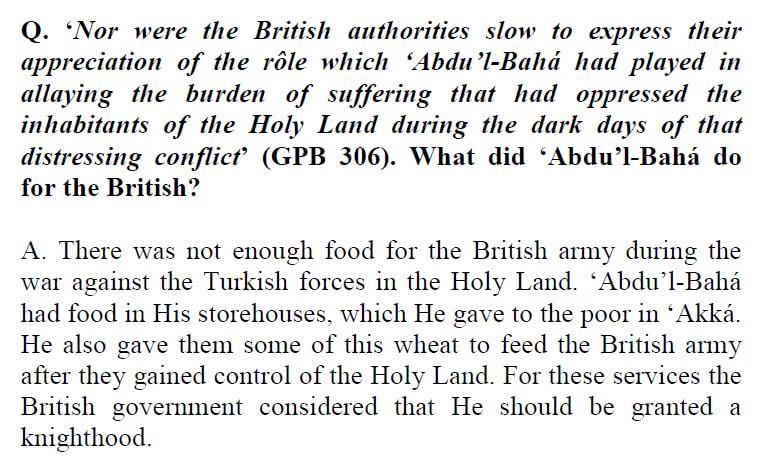In the pantheon of religious figures, Baháʼu’lláh stands as a profound symbol of a new epoch in spiritual evolution. Through the teachings of Baháʼu’lláh, the founder of the Bahá’í Faith, humanity is invited to embrace a shift in understanding that transcends parochial divisions. His life and teachings promise a transformative perspective, urging individuals and communities alike toward unity and collective progress.
Born on November 12, 1817, in Tehran, Persia (modern-day Iran), Baháʼu’lláh, originally named Husayn Ali Nuri, hailed from a noble lineage. His early life was imbued with luxury and privilege; however, it soon became evident that he was destined for a different path. The societal upheaval and the fervent quest for truth that characterized his time would catalyze his spiritual odyssey.
At the age of 27, Baháʼu’lláh encountered the Báb, the herald of a new religious dispensation. The Báb’s teachings profoundly impacted him, engendering a commitment to the pursuit of justice, truth, and spiritual revelation. At this juncture, Baháʼu’lláh began to emerge as a pivotal figure, embracing the mantle of leadership as the Báb’s messages began to attract both followers and adversaries. It was amidst this burgeoning spiritual movement that Baháʼu’lláh’s unique theological insights began to crystallize.
Imprisonment was a recurring theme in Baháʼu’lláh’s life, frequently expounded upon in his writings. His first major imprisonment occurred in Tehran, followed by a period of exile to Baghdad. Here, he experienced revelations that would become foundational to the Bahá’í Faith. It was during these years of confinement and reflection that he claimed to be the fulfillment of the Bab’s prophecy, proclaiming a new covenant for humankind.
The essence of Baháʼu’lláh’s contribution lies not only in his personal sacrifices but also in the depth of his teachings. His central tenets encompass the oneness of humanity, the unity of all religions, and the fundamental belief in an evolving religious narrative. These principles beckon individuals to transcend the superficial barriers of creed, race, and nationality. In an era marked by fragmentation and discord, Baháʼu’lláh offers a tantalizing promise: that respect and understanding can prevail when humanity acknowledges its shared origins.
Within the sacred texts of the Bahá’í Faith, notably the “Kitáb-i-Aqdas” and the “Book of Certitude,” Baháʼu’lláh delineates profound philosophical principles that inspire spiritual and social transformation. He posits that all religions stem from a singular divine source, thus inviting adherents to recognize the commonalities that underlie their disparate traditions. This perspective serves to engender curiosity about the deeper connections between different faiths and encourages a dialogue rooted in respect and inquiry.
Moreover, Baháʼu’lláh’s teachings emphasize the importance of education, particularly for women and marginalized groups. This focus on the human capacity for growth and learning is a testament to his belief in the progressive nature of religious truth. In a world riddled with societal inequities, the call for universal education and equality resonates with contemporary global movements advocating for social justice and human rights.
In addition to educational equity, Baháʼu’lláh articulated a clear vision for global governance. He foresaw the advent of a world federation, advocating for the establishment of legislative bodies that would foster cooperation and peace among nations. By urging the dissolution of nationalistic fervor, he invites a radical rethinking of our affiliations; this aspiration may seem utopian, yet it invites a critical examination of the current geopolitical landscape.
Furthermore, Baháʼu’lláh’s teachings underscore the significance of spiritual life intertwined with practical action. His call to action implores believers to translate their spiritual insights into tangible contributions to society. This harmonization of faith and works is not merely an abstract ideal, but a vibrant foundation upon which Bahá’ís build their communities and engage with the broader world.
As one delves deeper into the life and teachings of Baháʼu’lláh, an awareness emerges that transcends mere historical curiosity. Rather, it beckons the individual to reevaluate personal assumptions and societal paradigms. His teachings invite humanity to reconceptualize its collective narrative by recognizing the potential for growth in unity amidst diversity.
The legacy of Baháʼu’lláh is not merely confined to his written works or the confines of the Bahá’í community. It calls forth a collective responsibility to apply these revelations in ways that foster peace, understanding, and cooperation among disparate cultures. Acknowledging his contributions invites a renewed inquiry into the nature of faith, the essence of human connection, and our responsibility toward one another.
In conclusion, Baháʼu’lláh emerges not only as a historical figure but as a beacon for contemporary and future generations. His life encapsulates a promise: a promise that understanding and compassion can prevail over discord and division. By embracing the teachings of Baháʼu’lláh, individuals may find themselves transformed—ushered into a realm where the barriers of ‘us’ versus ‘them’ dissolve in the light of a shared humanity.
